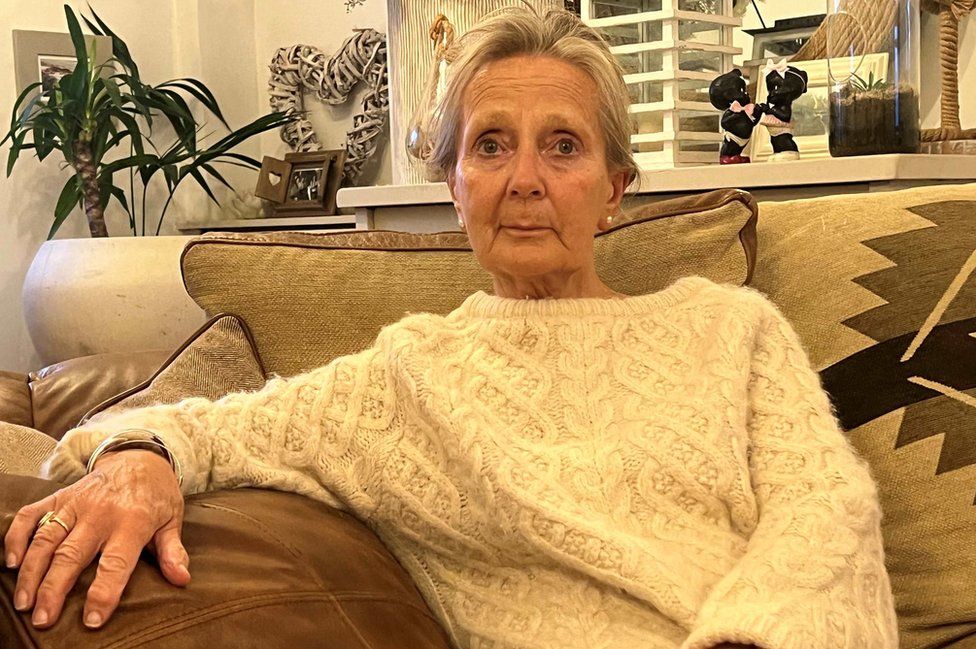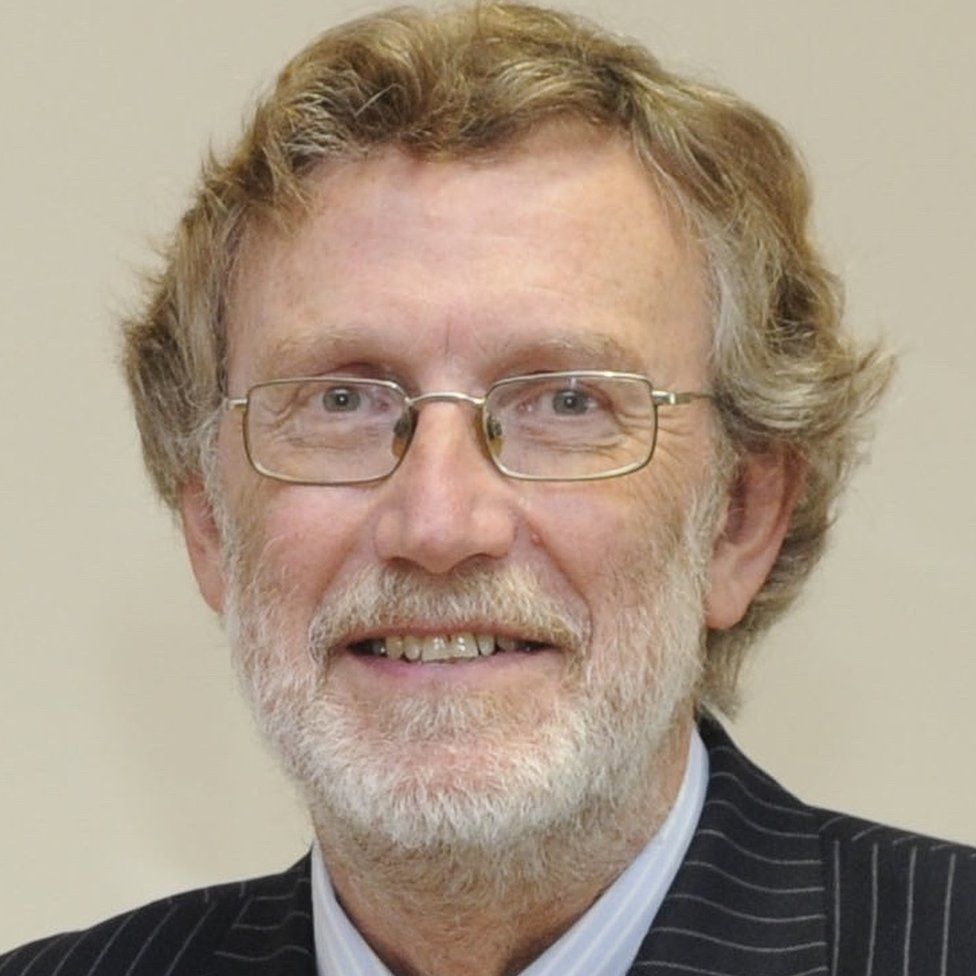
Services for people with ME are at "rock bottom" after the death of Scotland's only specialist nurse, campaigners have warned.
Myalgic encephalomyelitis, also known as Chronic Fatigue Syndrome (ME/CFS), causes extreme tiredness.
The charity ME Action says Scotland now only has "pockets of provision" based on "outdated" models of care.
The Scottish government says it is committed to creating a more equitable service for those with ME/CFS.
The condition causes extreme tiredness and can leave sufferers bedbound for months, or even years, at a time.
ME Action estimates the number of people with ME/CFS in Scotland has more than doubled from about 22,000 since 2019 to over 50,000 now.
Since the Covid pandemic there has been a rise in cases of post-viral illnesses, such as ME, with similar symptoms.
Keith Anderson had been Scotland's only specialist ME nurse, based in Fife. The service has been paused since he died last year.
Stella, from Tayport, says his help made her day-to-day life more manageable.
The 72-year-old was a fit grandmother who enjoyed yoga and looking after her grandchildren, but began showing ME symptoms in 2020.

Keith Anderson, who was based in Fufe, was Scotland's only specialist nurse
Her self-diagnosis was confirmed by Mr Anderson after she had been bedbound for more than a year, receiving "absolutely no help".
"I couldn't even lift my head off the pillow, lift a kettle, or go to the bathroom unassisted," she said.
Stella had appointments with Mr Anderson every three months and could contact him by telephone more frequently.
"Now Keith has died there's absolutely nothing," she said.
Paula Notman, 60, was a keen gym-goer who loved to exercise before her ME diagnosis.
It led to her giving up full-time work, the break-up of her relationship and left her unable to take her dog for walks.
"You mourn the person that you were, it's almost like a bereavement… I went through dark times," she said.

She started fortnightly appointments with Mr Anderson in 2020, describing him as "the best help… somebody who understood, made you feel validated and really went through everything".
He advised her on diet, medication and other ways to manage her symptoms - but now Paula says there is no-one to turn to.
"There's no help and no way forward, you're left to deal with it," she said.
"In this day and age Scotland should have something."
Karima Rahman, from ME Action, said Mr Anderson's death had left Scotland without any specialist doctors or consultants.
She said there were just "pockets of provision" that were based on "outdated models that don't meet the standard of care and treatment that patients should have access to".
'Failure of duty'
Dr Charles Shepherd, an expert on the condition who also works with the ME Association, said the number of specialist practitioners in Scotland had steadily declined over the years.
He said the death of Mr Anderson had left provision "at rock bottom".
"The ME Association receives regular reports from people in Scotland who are unable to be referred by their GP to a specialist ME/CFS service where they or their GP can obtain with help with diagnosis or management," he said.
"This represents a serious failure of duty by NHS Scotland to provide specialist help for people with ME/CFS."
He said GPs were being relied upon more heavily in Scotland than in England, where there are 57 clinics which follow National Institute for Health and Care Excellence (NICE) guidelines on referral and diagnosis.

While GPs are able to diagnose the condition, they often lack training - which can lead to delays.
In 2022, a Scottish government report acknowledged that "despite a growing recognition of the need for specialist ME/CFS services, actual implementation has been minimal".
The government said it was considering a recent analysis of provision across Scotland and was committed to creating a more equitable service.
It said specialist provision did currently exist within NHS Lothian at the Astley Ainsley Hospital in Edinburgh, and that a service was being offered by NHS Greater Glasgow and Clyde.
However, a recent government survey of NHS boards said this was not a specific ME/CFS service. Neither service has a specialist clinician on site nor acts as a point of referral for formal diagnosis.
Dr Shepherd said the Lothian Service was more focused on pain management and that there had been "very mixed reports" about the Glasgow service.
He said they did not provide the level of care recommended in the new in the new NICE guidelines.
These UK-wide guideline are followed in Scotland because the country does not have its own version through the Scottish Intercollegiate Guidelines Network (SIGN).
'Valuable' service
NHS Lothian says it was operating within the NICE guidelines, with a team of psychologists, physiotherapists and occupational therapists on site.
NHS Greater Glasgow and Clyde said the NHS Centre for Integrative Care sees people referred with a wide range of long term conditions and complex co-morbidity, including people with ME/CFS.
A spokesman said: "Each person is assessed individually and a person-centred approach is followed rather than focus on a specific condition or diagnosis."
Other Scottish NHS boards told the BBC they offered a range of primary care services, holistic and psychological support - but had no plans to introduce specialist services.
Dr Gregor Purdie, a retired ME specialist physician, said there was a lack of specialist training across the UK.
He said a historical perception that the condition had a psychological rather than a physiological basis had led to many doctors "shying away" from it.
This led to "a dearth of support and interest by the medical profession and health services in general", he said.
"We need to train clinicians that have a specific interest in ME/CFS."
NHS Fife said the "valuable" service which had been provided by Keith Anderson was currently paused because no suitably experienced specialist nurse was available.
"New temporary arrangements were put in place to enable GPs to refer patients with ME/CFS to other services for those with long-term conditions," it said.
NHS Fife said it did not intend to close the service, but could not say when a replacement would be hired given the shortage of specialists across the UK.
From BBC
